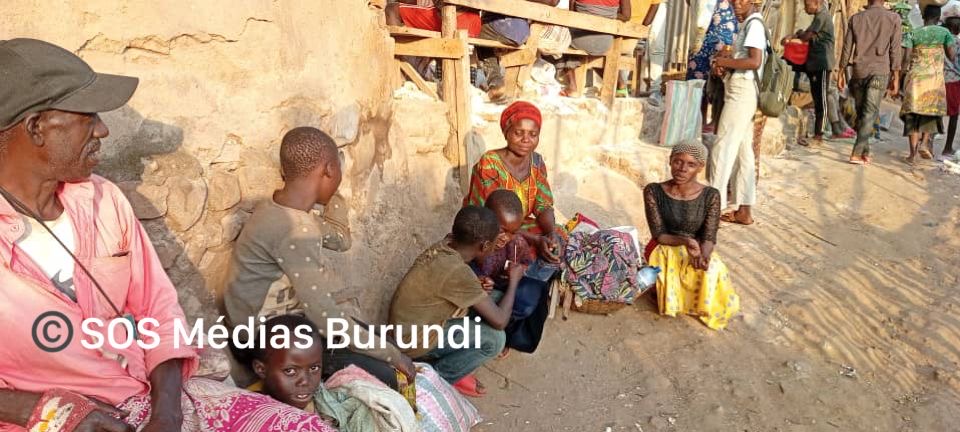Bujumbura : faced with the high cost of living, Batwa women adopt a new approach

Despite economic hardship and stigma, some Batwa women in Bujumbura Province (western Burundi) refuse to give up. Abandoning begging, they find dignified livelihoods, thus inspiring their community.
INFO SOS Médias Burundi
Among these courageous women is Anitha Barakanyamaniye, known by the nickname Maman Evelyne. A vegetable seller at the small Gikungu market in the north of the commercial capital, Bujumbura, she rejects begging, which she considers humiliating.
« Everyone knows me here, and even my children have never begged, » she says proudly.
Originally from the Isale district, she has been working in this profession for several years. Like the other women at the market, she faces daily challenges, but sometimes feels a pang in her heart when her ethnic identity is persistently reminded.
« I am a woman, a mother, and yes, I am Umutwakazi and I am proud of it. But I don’t need to be constantly reminded of it. It often implies that I can’t move forward. Yet, I fight like any other woman here, » she explains.
A will to succeed despite obstacles
Asked about possible discrimination at work, she insists that she gets along well with her colleagues.

Febronie Nahimana and Francine Manirakiza at the Nyenzari market (SOS Médias Burundi)
« Everyone knows I’m Mutwakazi, but we get along well. Many Batwa women of my age still beg, but I chose a different path. I started by observing other women who went to the Cotebu market to buy fresh vegetables before selling them in Gikungu. With a small amount of capital, I persisted and was even able to buy a plot of land where I built a house. Today, I’m happy and my business is doing well, » she confides with satisfaction.
Facing prejudice and uncertainty
Despite her determination, she had to face doubts and discouraging words.
« Some told me I wouldn’t make it, but I didn’t pay attention, » she says. « My only fear is political instability. As long as there’s peace, I can manage like any other woman, whether Tutsi or Hutu. Here, we help each other, » she adds.
Her colleagues salute her courage. « She’s an exemplary woman. Other Batwa women should take inspiration from her. Today, life is hard, and even benefactors are few and far between. » « You have to work, » advises Ménédore Hakizimana, an avocado seller.
A daily life between begging and trading
In another small market, in Nyenzari, other Batwa women are also trying to get by. Francine Manirakiza and Febronie Nahimana, originally from Gasi village in Isale district, have found an alternative to traditional begging.
They ask for clothes, which they resell to meet their needs. « We still beg, but mainly to get clothes and shoes, which we resell. We turn this begging into a small amount of capital to feed ourselves and our children, » they explain.
Every afternoon, they go to the Nyenzari market to sell what they got and buy food.
« Rather than sitting idly by or stealing like some, we chose this solution, » says one of them.
These women, however, highlight a major obstacle : access to land and employment. « We don’t have land to cultivate, and because of the stigma, we have difficulty finding work, » they lament.
Despite these difficulties, more and more Batwa women are daring to break down barriers and find ways to earn a decent living.

Anitha Barakanyamaniye selling her vegetables ( SOS Médias Burundi)
The Batwa are a very small and marginalized minority tribe in Burundi. They are also found in countries in the sub-region such as Rwanda and the Democratic Republic of Congo (DRC). Despite the quotas granted to them by the Burundian Constitution, particularly in parliament, the Batwa continue to face several challenges, including lack of access to education and healthcare. Since the small East African nation’s existence, the Batwa have had a representative in the government : Minister Imelde Sabushimike, in charge of Solidarity and Human Rights.
——
Febronie Nahimana and Francine Manirakiza at the Nyenzari market (SOS Médias Burundi)

